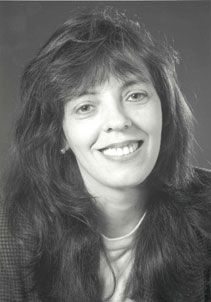Biography
Carla Gomes is the Ronald C. and Antonia V. Nielsen Professor of computer science at Cornell University, with joint appointments in the Dept. of Computer Science, Dept. of Information Science, and the Dyson School of Applied Economics and Management. Gomes obtained a Ph.D. in computer science in the area of artificial intelligence and operations research from the University of Edinburgh. She also holds an M.Sc. in applied mathematics from the University of Lisbon.
Her research has covered several areas in artificial intelligence and computer science, including the integration of constraint reasoning, operations research, and machine learning techniques for solving scale constraint reasoning and optimization problems, complete randomized search methods, and algorithm portfolios, planning and scheduling, and multi agent systems. Gomes's central research themes are the integration of concepts from constraint and logical reasoning, mathematical programming, and machine learning, for large scale combinatorial problems; the study of the impact of structure on problem hardness; and the use of randomization techniques to improve the performance of exact (complete) search methods.
More recently, Gomes has become deeply immersed in research in the new field of Computational Sustainability. Gomes is the Lead PI of an NSF Expeditions in Computing award on Computational Sustainability and the director of the newly established Institute for Computational Sustainability at Cornell University. Gomes is a Fellow of the Association for the Advancement of Artificial Intelligence.
Research Interests
My research area is Artificial Intelligence with a focus on large-scale constraint-based reasoning and optimization. I exploit connections between different research areas --- in particular artificial intelligence, operations research, and the theory of algorithms. Central themes of my research are: (1) the synthesis of formal and experimental research for understanding and exploiting problem structure, (2) the integration of concepts from constraint reasoning and mathematical programming, and (3) the use of randomization techniques to scale up the performance of complete (exact) search methods . I combine formal analysis with the study of applications such as planning, scheduling, combinatorial design, and multi-agent systems. Recently, I have become deeply immersed in the establishment of new field of Computational Sustainability.
Computational Sustainability is a new interdisciplinary research field, with the overarching goal of studying and providing solutions to computational problems for balancing environmental, economic, and societal needs for a sustainable future. Such problems are unique in scale, impact, complexity, and richness, often involving combinatorial decisions, in highly dynamic and uncertain environments, offering challenges but also opportunities for the advancement of the state-of-the-art of computer and information science. Work in Computational Sustainability integrates in a unique way various areas within computer science and applied mathematics, such as constraint reasoning, optimization, learning, and dynamical systems. The research necessarily entails a cross-fertilization of approaches and ideas from several research communities, bringing together computer scientists, biologists and environmental scientists, biological and environmental engineers, sociologists, and economists. Concrete examples of computational sustainability challenges range from to planning and optimization for wildlife preservation and biodiversity conservation, to poverty mapping, to the design of intelligent or â€,smartâ€, control systems for energy-efficient buildings, to balancing portfolios of renewable energy sources.
In 2008, under the NSF Expeditions in Computing program, we created the Institute for Computational Sustainability (ICS) to forge a highly interdisciplinary effort to nurture the field of Computational Sustainability. Our vision is that computer science can --- and should --- play a key role in increasing the efficiency and effectiveness of the way we manage and allocate our natural resources. The plethora of challenging computational research questions posed by sustainability problems, pushing the boundaries of current computational methods, also provides an exciting way to broaden and advance the state-of-the-art of computer science.


